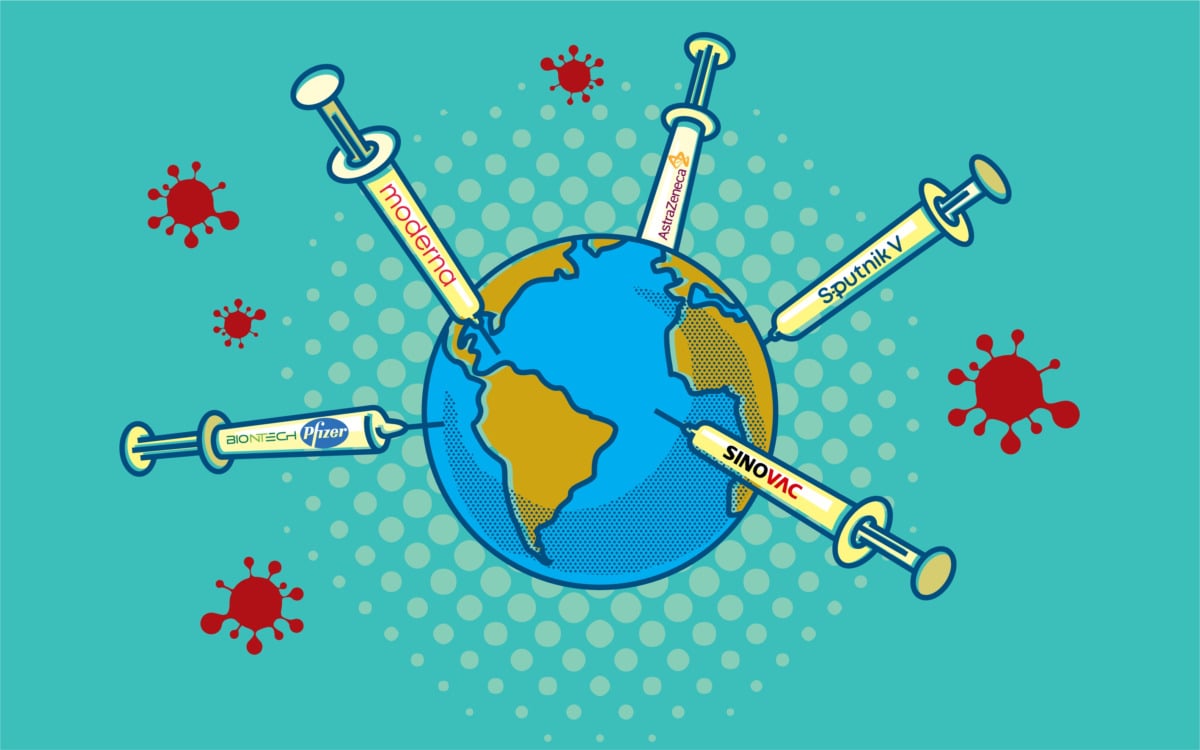Localizing pharma manufacturing worldwide is an extremely important step, and it holds particular significance for Africa. The continent is more vulnerable to disease burdens and lags behind other continents when it comes to vaccine and general healthcare access. Localized manufacturing could help people in Africa gain easier and more affordable access to vaccines and other medications, such as anti-malarial drugs.
Commenting in Site Selection Magazine, André Guedel, director and head of Site Selection and Location Development Services for KPMG Switzerland, explained that much of the manufacturing of pharmaceutical products for African markets is currently performed in India and China.
Guedel said: “Most of these countries (in Africa) have decent med schools or pharma schools. If you graduated from a pharma school in one of these countries, it should be sufficient to work in a factory. That’s also a benefit of locating manufacturing there. In Nigeria, for instance, people are leaving the country and there’s a big brain drain. If more companies set up, they’d say ‘Let’s stay here.’ Finding the qualified workforce is a big issue.”
The lack of localized pharma manufacturing in Africa has played a role in health and vaccine inequity across the continent. At the start of 2022, the COVID-19 vaccination rate was less than 5% on average in 16 African countries (although that rate has now grown thanks to an EU-funded project to raise COVID-19 vaccine coverage on the continent). Meanwhile, preventable diseases like malaria, pneumonia, and typhoid continue to kill thousands.
In an article for the Bill & Gates Media Foundation, Anita Zaidi, president of the Gender Equality Division at the Bill & Melinda Gates Foundation, wrote: “Over the years of doing this work, we have learned that expanding the geographic distribution of vaccine manufacturing capacity is critical to achieving vaccine equity.
“It’s not a coincidence that countries with domestic capacity have received most of the COVID-19 vaccines, while those without have been forced to wait. Vaccine manufacturers located in developing countries (or “DCVMs” for short) are also often more receptive than large multinational corporations to focusing on neglected diseases, especially when those diseases remain endemic in their country or region.”
Fortunately, things are starting to change in Africa. A number of initiatives have now been put into place to potentially turn Africa into the next big biopharma and vaccine manufacturing destination. And it seems it is already attracting the attention of international companies, too.
Vaccine technology transfer hub: WHO and Afrigen Biologics aim to increase local vaccine production capacity in Africa
One such initiative, supported by the World Health Organization (WHO), is the mRNA vaccine technology transfer hub. Announced on June 21, 2021, the objective of the technology transfer hub is to build capacity in low- and middle-income countries (LMICs) – including countries in Africa – to produce mRNA vaccines through a center of excellence and training.
The hub is designed to share technology and technical know-how with local producers; WHO and its partners bring training and financial support to build the necessary human capital for production know-how, quality control, and product regulation, and assist where needed with any necessary licenses.
The idea is that, through providing a range of services along the entire vaccine value chain, recipients will be able to contribute to the global effort to increase local vaccine production capacity, and may sign agreements with producers or develop vaccines locally.
Based in South Africa, biotech company Afrigen Biologics is one of the partners spearheading this initiative. The hub is actually located at Afrigen, in Cape Town – and was tasked with making its own mRNA vaccine against COVID-19 using the publicly available sequence of Moderna’s vaccine. In a recent update, it was reported that the company has “progressed towards manufacturing capabilities suitable for phase 1/2 clinical trial material production.”
If successful, it could be a world first; the vaccine candidate would be the first to be made based on a widely used vaccine without the assistance and approval of the developer, and would also be the first mRNA vaccine designed, developed, and produced at lab scale in Africa.
“If this project shows that Africa can take cutting-edge technology and produce cutting-edge products, this will banish this idea that Africa can’t do it and change the global mindset…this can be a game-changer,” Charles Gore, executive director at Medicines Patent Pool (MPP), told Reuters at Afrigen’s facility last year.
Additionally, in another recent announcement, Afrigen has partnered with Danish company Evaxion to develop a novel mRNA vaccine against gonorrhea, for which no vaccine currently exists. Afrigen’s managing director, Petro Terblanche stated: “This innovative exciting partnership enables the mRNA technology platform established at Afrigen through the support of the WHO and MPP to expand the pipeline of products to be developed for the mRNA Programme. This supports the sustainability of manufacturing capacity being created in the LMIC partners.”
Groundbreaking vaccine manufacturing initiative unveiled in Senegal
Another vaccine manufacturing initiative was launched in June this year, in Dakar, Senegal, where the Institut Pasteur de Dakar (IPD) and the Mastercard Foundation jointly rolled out a partnership called MADIBA, which stands for Manufacturing in Africa for Disease Immunisation and Building Autonomy.
The $45 million multi-year project includes the establishment and development of a world-class workforce to support vaccine manufacturing, and there will be a Center of Training Excellence for talented young people – especially young women – to equip them with specialized skills in various aspects of vaccine research, manufacturing, production, and distribution.
The ultimate goal of the initiative is for graduates of the MADIBA training program to help drive the success of other pharma manufacturing facilities across Africa. As they enter the workforce, the aim is for them to bring about a multiplier effect, catalyzing the transformation of vaccine manufacturing capabilities in Africa.
MADIBA will also help to advance the Emerging Senegal Plan, which is a Senegalese government-initiated development model aiming to achieve the goal of manufacturing 50% of the country’s pharmaceutical products by 2035.
According to a United Nations (UN) article, industry experts say that this groundbreaking initiative represents a crucial first step towards vaccine self-sufficiency in the region, as it can become a possible blueprint for future vaccine manufacturing facilities across Africa.
BioNTech complete vaccine manufacturing facility in Africa
Alongside these local initiatives, it seems that international biotech companies are also starting to set up shop in Africa to help drive localized pharma manufacturing on the continent. In a move to launch its manufacturing presence in Africa, BioNTech began the construction of an mRNA vaccine manufacturing facility in Rwanda last year.
To run the facility, the company is committed to hiring employees locally in Africa, and is working closely with partners at local and international levels, as well as experts from research and academia. Currently, the company’s staff in Rwanda are from seven different African countries.
BioNTech is also planning to set up plants in South Africa and Senegal, as part of what it describes as an effort to democratize access to novel medicines around the globe.
In a statement sent to Labiotech, BioNTech said: “It takes several solutions to achieve pharmaceutical equity from R&D to manufacturing to the required regulatory framework. To this end, we are working closely with WHO, our African partners, the European Union, as well as with governments and regulators. We want to contribute with state-of-the-art technological advancements, and our mRNA platform, to develop vaccine candidates for indications with high unmet medical need, such as malaria, tuberculosis, HSV-2, and HIV.
“In addition, we are determined to manufacture mRNA-based cancer immunotherapies on the African continent once they are successfully developed and approved. This effort is highly relevant, as low- and middle-income countries are disproportionately affected by cancer cases and deaths as well as certain infectious diseases.”
New pharma manufacturing plant in Africa set to produce five billion tablets per year
In another recent announcement, Shanghai Fosun Pharmaceutical is collaborating with the International Finance Corporation (IFC) to construct a new pharma manufacturing facility and distribution hub near Abidjan, Côte d’Ivoire, to enhance access to high-quality medicines in Africa.
The IFC will provide two loans totaling $53.49 million to Fosun Pharma’s subsidiaries, with the funding being used to support the production plant and distribution hub. The plan is for the manufacturing site to be completed in three phases. It will produce anti-bacterial medicines and anti-malarial drugs, with an estimated production capacity of five billion tablets per year.
This is highly significant considering that more than 95% of global malaria cases – and 96% of deaths from the virus – occur in Africa, with children under five accounting for about 80% of all malaria deaths in the region.
IFC Africa vice president Sérgio Pimenta said: “Strengthening Africa’s healthcare infrastructure and capabilities is absolutely essential for the continent’s future social and economic development, especially in the wake of COVID-19. IFC’s partnership with Fosun will increase Africa’s ability to manufacture essential drugs locally, helping patients more easily access high-quality, affordable medicines.”
Looking ahead: what challenges remain?
According to a new briefing paper by the Africa Centres for Disease Control and Prevention (Africa CDC), the Clinton Health Access Initiative (CHAI), and PATH, African vaccine manufacturing is set to expand dramatically, as the continent works to safeguard itself against future pandemics and disease outbreaks, and to ensure delays, like the ones African nations faced in receiving COVID-19 vaccines, never happen again.
However, for LMICs like those in Africa, creating and sustaining a resilient healthcare and manufacturing ecosystem is an ambitious undertaking that comes with many challenges.
For example, the paper noted that African vaccine manufacturing capacity is heavily concentrated on form/fill/finish, with a significant level of additional capacity still planned. If all plans are realized, the capacity to form/fill/finish vaccines would more than double the projected African vaccine demand in 2030. And, at that level of capacity, there is a risk that not every manufacturing project would be sustainable and commercially viable.
On the other hand, the capacity to produce antigens locally is very limited, and is well below the capacity that would be needed to meet regional production targets.
The paper also mentioned that, to accelerate the use of the robust capacity for form/fill/finish, Africa is currently very reliant on technology transfers from international vaccine manufacturers. The issue with this is that there are insufficient technology transfers in place to support the majority of current and planned vaccine manufacturing capacity.
Finally, the research in the paper concluded that some African vaccine manufacturers already have strong financial capabilities – the means to access financing for the facilities and operations needed to produce vaccines – but need to further develop their commercial capabilities, establishing a strategic business case to produce those vaccines.
Judging from this paper, there is clearly still a lot more work to be done to turn Africa into a biopharma and vaccine manufacturing powerhouse. But, with all of the new initiatives being put into place, as well as the fact that the continent is starting to bring in international players wanting to manufacture vaccines locally there, progress is definitely being made, suggesting a promising future for pharma manufacturing in Africa.

















No Comments
Leave a comment Cancel